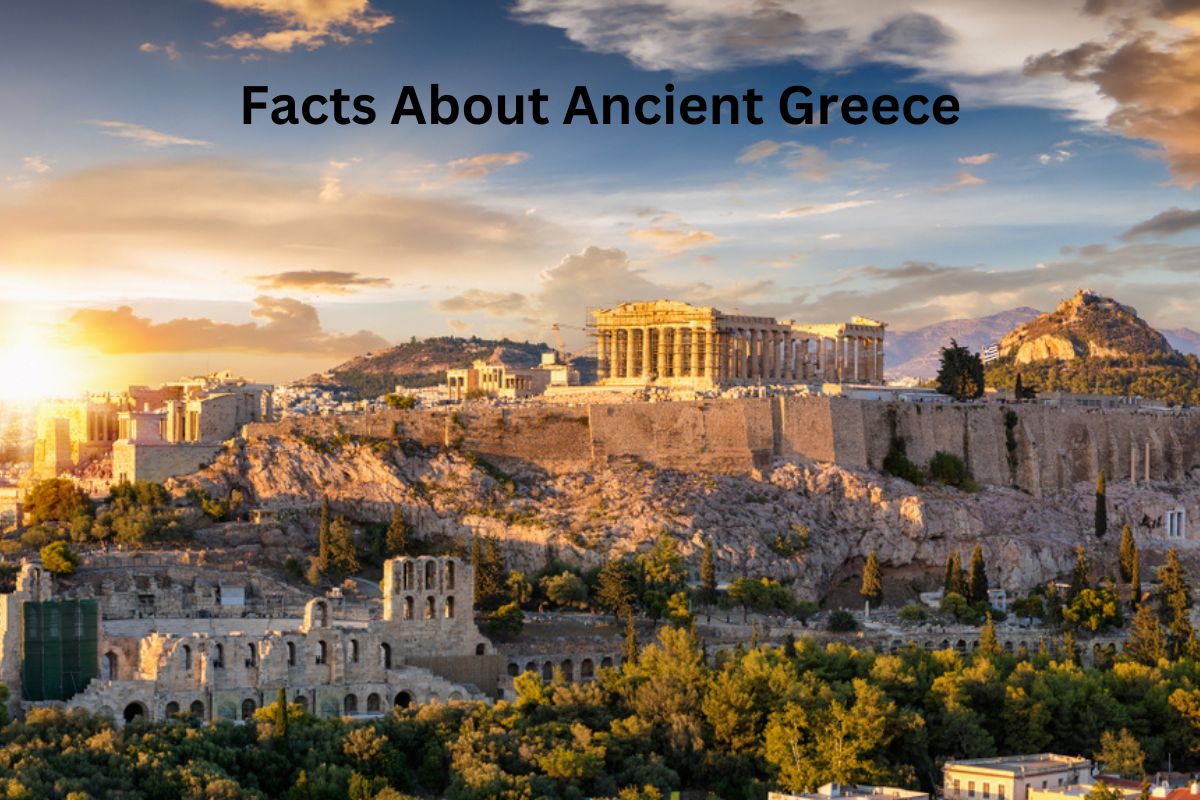Ancient Greece, a civilization that flourished from the 8th century BCE to the 4th century BCE, left a lasting impact on Western civilization. Situated in the eastern Mediterranean, Greece was comprised of independent city-states with their unique governments, customs, and rivalries.
The ancient Greeks believed in a pantheon of gods and goddesses, and their mythology played a significant role in their lives. Greece is often hailed as the birthplace of democracy, where the city-state of Athens established a system in which eligible citizens had a voice in decision-making.
They also excelled in various fields of knowledge, making remarkable contributions to philosophy, mathematics, and medicine. Their artistic and architectural achievements, such as the Parthenon and Greek theater, continue to inspire awe.
Greece witnessed major conflicts, including the Persian and Peloponnesian Wars, which shaped its history.
After the conquests of Alexander the Great, the Hellenistic period emerged, spreading Greek culture and ideas throughout the conquered lands. Ancient Greece’s legacy is marked by its cultural achievements, philosophical insights, and enduring influence on the development of Western civilization.
Ancient Greece Facts
1. Collection of independent city-states
Ancient Greece was not a unified nation but rather a collection of independent city-states known as polis.
Each city-state, such as Athens, Sparta, Corinth, and Thebes, had its own government, laws, and cultural traditions. These city-states often had alliances or engaged in conflicts with one another.

2. Belief in a pantheon of gods and goddesses
The ancient Greeks had a polytheistic religion and believed in a pantheon of gods and goddesses. They worshiped a wide array of deities, each associated with different aspects of life and nature.
Also Read: Ancient Greece Timeline
The most powerful gods were often depicted as residing on Mount Olympus. Zeus was considered the king of the gods, while other important deities included Hera, Athena, Poseidon, and Apollo.
3. Birthplace of democracy
Ancient Greece, particularly Athens, is widely regarded as the birthplace of democracy. In Athens, eligible male citizens had the right to participate in the decision-making process through an assembly, where they could propose and vote on laws.
Also Read: Accomplishments of Ancient Greece
This democratic system, though limited in its inclusivity, was a significant departure from autocratic rule prevalent in other ancient societies.
4. Origin of the Olympic Games
The Olympic Games, one of the most iconic sporting events in history, originated in ancient Greece. The ancient Olympics were held every four years in Olympia, a sacred site dedicated to the god Zeus.
The Games featured various athletic competitions, including running, wrestling, chariot races, and discus throwing. They not only showcased physical prowess but also had religious and cultural significance, fostering a sense of unity among the Greek city-states during the truce period.
5. Rich mythology and legends
Ancient Greek mythology played a significant role in the lives of the Greeks. Their mythology consisted of a vast collection of stories, legends, and myths that explained the origins of the world, natural phenomena, and the adventures of gods, goddesses, and heroes.
These myths, such as the tales of Zeus, Hera, Heracles (Hercules), and Perseus, not only entertained but also provided moral and ethical lessons.
6. Militaristic society in Sparta
Sparta was known for its militaristic society and the importance it placed on military training and discipline. Spartan men underwent rigorous physical and military training from a young age.
They were expected to become highly skilled warriors and dedicated soldiers, with the sole purpose of defending the city-state. The emphasis on military prowess influenced the social structure and values of Spartan society.
7. Contributions to philosophy, mathematics, and medicine
Ancient Greece made significant contributions to various fields of knowledge that continue to shape our understanding today.
In philosophy, Greek thinkers like Socrates, Plato, and Aristotle laid the foundations for Western philosophical thought, exploring questions of ethics, metaphysics, and political philosophy. Greek mathematicians, including Pythagoras and Euclid, made important discoveries in geometry and number theory.
Additionally, Greek physicians like Hippocrates established the principles of medicine, separating it from superstition and emphasizing the importance of observation and rationality.
8. Epic poems, the Iliad and the Odyssey
The ancient Greek poet Homer is credited with composing two of the most famous epic poems of all time: the Iliad and the Odyssey. The Iliad recounts the events of the Trojan War, focusing on the hero Achilles and the conflict between the Greeks and Trojans.
The Odyssey follows the hero Odysseus on his journey back home to Ithaca after the war. These epic poems are not only masterpieces of literature but also provide insights into ancient Greek society, values, and the concept of heroism.
9. The iconic Parthenon in Athens
The Parthenon, located on the Acropolis in Athens, is one of the most iconic structures from ancient Greece. Built in the 5th century BCE as a temple dedicated to the goddess Athena, it is renowned for its architectural beauty and harmonious proportions.
The Parthenon showcases the mastery of ancient Greek architecture, characterized by the use of Doric columns, pediments, and friezes. Despite its damaged state, it continues to be a symbol of ancient Greek civilization and is recognized as a UNESCO World Heritage site.
10. Birthplace of Western drama
Ancient Greece is considered the birthplace of Western drama. The ancient Greeks developed and popularized the art of theater, which became an integral part of their culture.
Playwrights such as Aeschylus, Sophocles, and Euripides wrote and staged tragedies and comedies that explored complex themes and human emotions.
These theatrical performances were held in open-air amphitheaters, such as the Theater of Dionysus in Athens, and were attended by thousands of spectators. Greek theater not only entertained but also served as a platform for social commentary and philosophical exploration.
11. Valued art and sculpture
Ancient Greece produced remarkable works of art and sculpture that showcased a high level of skill and aesthetics. Greek artists created sculptures in various mediums, including marble, bronze, and terracotta.
They sought to capture the beauty and idealized form of the human body, resulting in statues that displayed a sense of harmony, balance, and naturalism. Famous examples include the statue of Zeus at Olympia, the Aphrodite of Knidos, and the Discobolus (Discus Thrower).
Greek art also adorned pottery, vases, and friezes, depicting mythological scenes, historical events, and everyday life.
12. Experienced major wars like the Persian and Peloponnesian Wars
Ancient Greece witnessed several significant wars that shaped its history and influenced subsequent events. The Persian Wars (499-449 BCE) were a series of conflicts between the Greek city-states and the Persian Empire.
The Greeks, led by Athens and Sparta, successfully repelled Persian invasions, defending their freedom and independence.
The Peloponnesian War (431-404 BCE) was a protracted conflict between Athens and Sparta, along with their respective allies. It resulted in the decline of Athens’ power and marked the end of the golden age of ancient Greece.
13. Hellenistic period after Alexander the Great
The Hellenistic period refers to the time following the conquests of Alexander the Great, which spread Greek culture and influence across vast regions. After Alexander’s death in 323 BCE, his empire fragmented into various Hellenistic kingdoms.
During this era, Greek ideas, art, and language merged with local customs, resulting in a rich cultural blend. Cities like Alexandria in Egypt became centers of learning and intellectual pursuits. Hellenistic culture had a profound impact on fields such as art, philosophy, science, and literature, fostering new developments and influencing subsequent civilizations.
